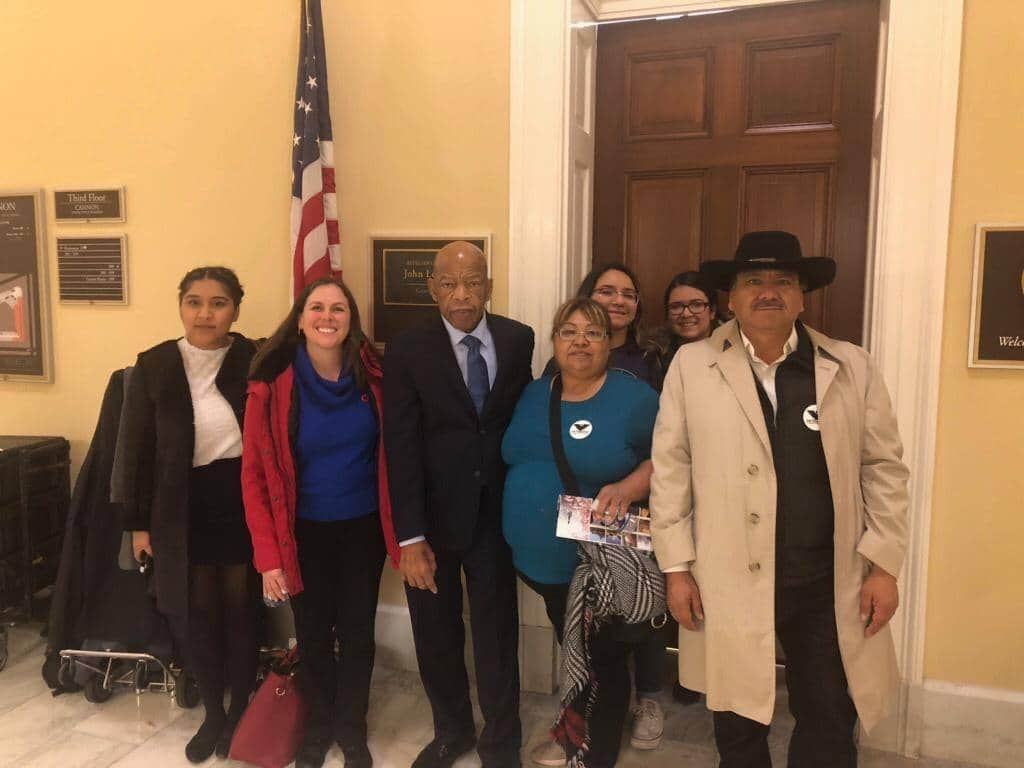It is with great sadness that we have learned of the passing of civil rights hero and Georgia U.S. Representative John R. Lewis at age 80. Son of Alabama sharecroppers who never accepted Jim Crow segregation. Protégé of Dr. Martin Luther King Jr. The youngest national civil rights leader in the 1960s. The last surviving speaker, when he was 23, at the historic 1963 March on Washington. Brutally beaten and jailed countless times while facing down racism, including most famously on “Bloody Sunday” in 1965 near the Edmund Pettis Bridge in Selma, Alabama, which helped inspire the Voting Rights Act. Known as the “Conscience of the Congress” since first getting elected to the U.S. House of Representatives in 1986.
John Lewis also worked closely with Cesar Chavez in poor African American and Latino neighborhoods of Los Angeles during Senator Robert F. Kennedy’s ill-fated presidential campaign in May and June 1968. “Five decades have passed,” John Lewis recalled in 2018, “but I have never forgotten what Cesar and the farm worker movement meant to me. All these years I have striven to remain devoted to the cause that brought Cesar and I together during those fateful times. Today’s times demand the same devotion by us all.”
The congressman was arrested along with UFW members and other immigration activists at the U.S. Capitol in 2013, fighting to get immigration reform passed. John Lewis inspired the farm workers and his presence helped validate their struggle.

Photo of a farm worker delegation in Washington, D.C. last December, including UFW Foundation Executive Director Diana Tellefson Torres (second from left), receiving support from Rep. John R. Lewis for their bill that passed the House that month providing immigration reform for undocumented agricultural workers.
